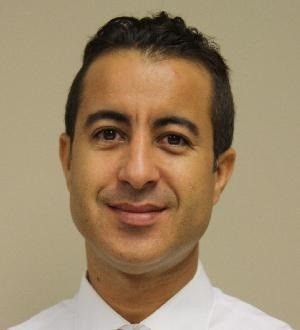BY RACHID AIT MAALEM LAHCEN, PH.D., GEP CO-LEAD, PROBLEM SOLVING FOUNDATION

As an educator, I always attempt to identify and integrate concepts into my classes that enable students to learn and make connections across multiple disciplines. This approach creates a positive educational experience that can influence student behavior and perceptions.
I became involved with UCF’s General Education Program (GEP) because it supports and advances my teaching philosophy. The UCF GEP aims to provide students with a cohesive and integrative learning experience. Maximizing the power of the GEP requires all of us to help students see the big picture and understand that specialization in a field demands a foundation from various other areas.
For example, a wide range of students take the MAC1105 College Algebra as a GEP course. They bring different skills, backgrounds, and plans to achieve various careers. Teaching college algebra solely to build algebraic skills may not benefit them. It could reinforce students’ misconception that the class is just part of the checklist of required courses. Moreover, it could affect what a student does and thinks and the ability to learn algebra.
Nobel Laureate Herbert Simon said, “Learning results from what the student does and thinks and only from what the student does and thinks. The teacher can advance learning only by influencing what the student does to learn.”
Against this backdrop, UCF’s Department of Mathematics is enhancing this GEP Problem Solving Foundation course by addressing four main areas:
- Revamping the curriculum based on faculty contribution and Curriculum Alignment engagement.
- Emphasizing the GEP’s integrative education and conducting its assessment.
- Implementing adaptive technology to individualize learning paths, inform instruction topics, and facilitate the opportunity to take multiple math levels in one semester.
- Fostering human connection by having trained learning undergraduate assistants and graduate teaching assistants work one-on-one with students in the classroom.
This spring, faculty teaching primary GEP math courses received a communication about the GEP course preparation checklist and a reminder to conduct the assessment. To ensure we were creating the greatest impact, a group met in January to discuss implementing and submitting GEP assessment.
If you would like to discuss how I incorporate the GEP Foundations and Learning Outcomes in my classes, don’t hesitate to get in touch with me at rachid@ucf.edu.